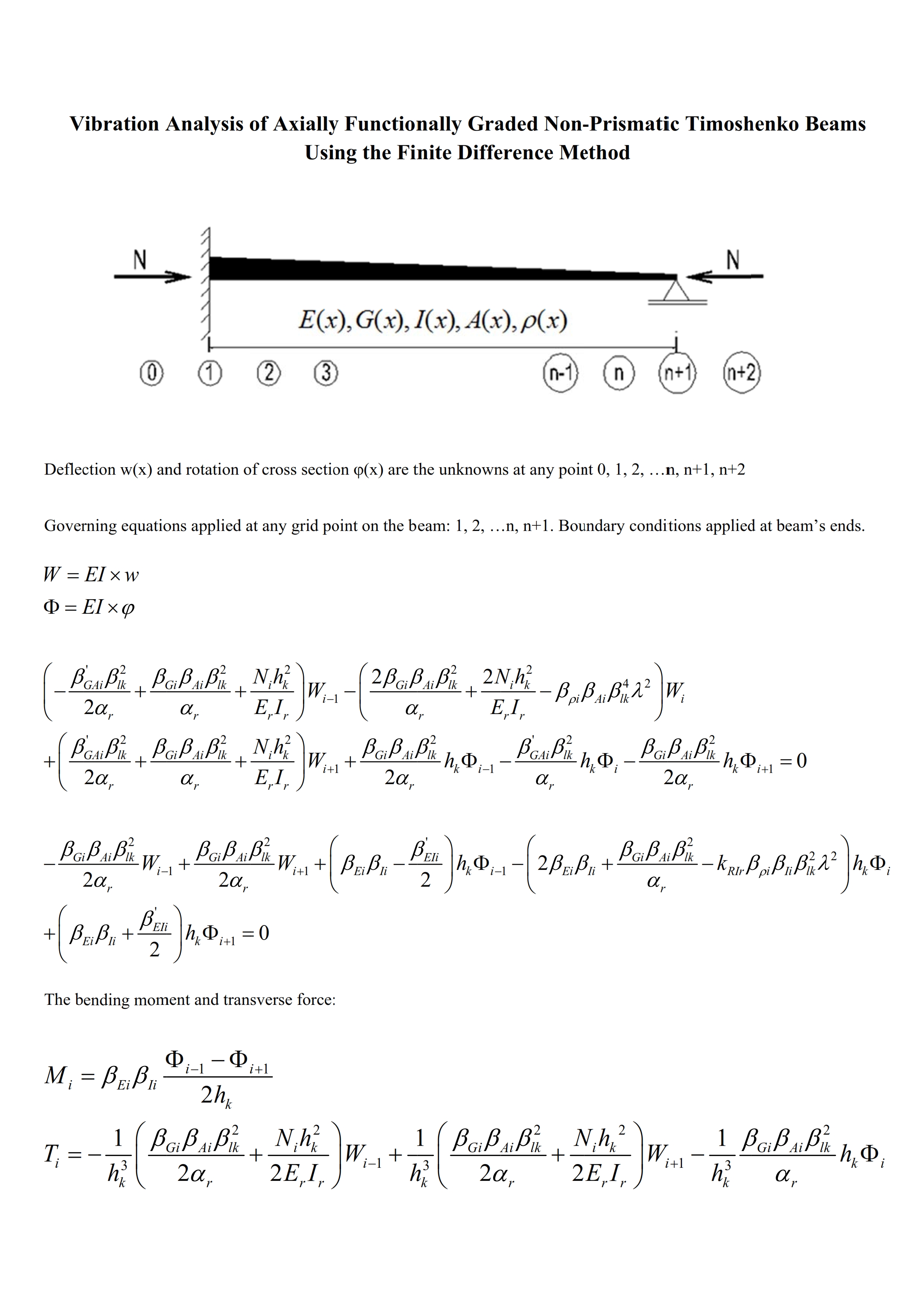This paper presents an approach to the vibration analysis of axially functionally graded non-prismatic Timoshenko beams (AFGNPTB) using the finite difference method (FDM). The characteristics (cross-sectional area, moment of inertia, elastic moduli, shear moduli, and mass density) of axially functionally graded beams vary along the longitudinal axis. The Timoshenko beam theory covers cases associated with small deflections based on shear deformation considerations. The FDM is an approximate method for solving problems described with differential or partial differential equations. It does not involve solving differential equations; equations are formulated with values at selected points of the structure. The model developed in this paper consists of formulating differential or partial differential equations with finite differences and introducing new points (additional or imaginary points) at boundaries and positions of discontinuity (concentrated loads or moments, supports, hinges, springs, and brutal change of stiffness). The introduction of additional points allows satisfying boundary and continuity conditions. Vibration analysis of AFGNPTB was conducted with this model, and natural frequencies were determined. Finally, the direct time integration method (DTIM) was presented. The FDM-based DTIM enabled the analysis of forced vibration of AFGNPTB, considering the damping. The efforts and displacements could be determined at any time.

